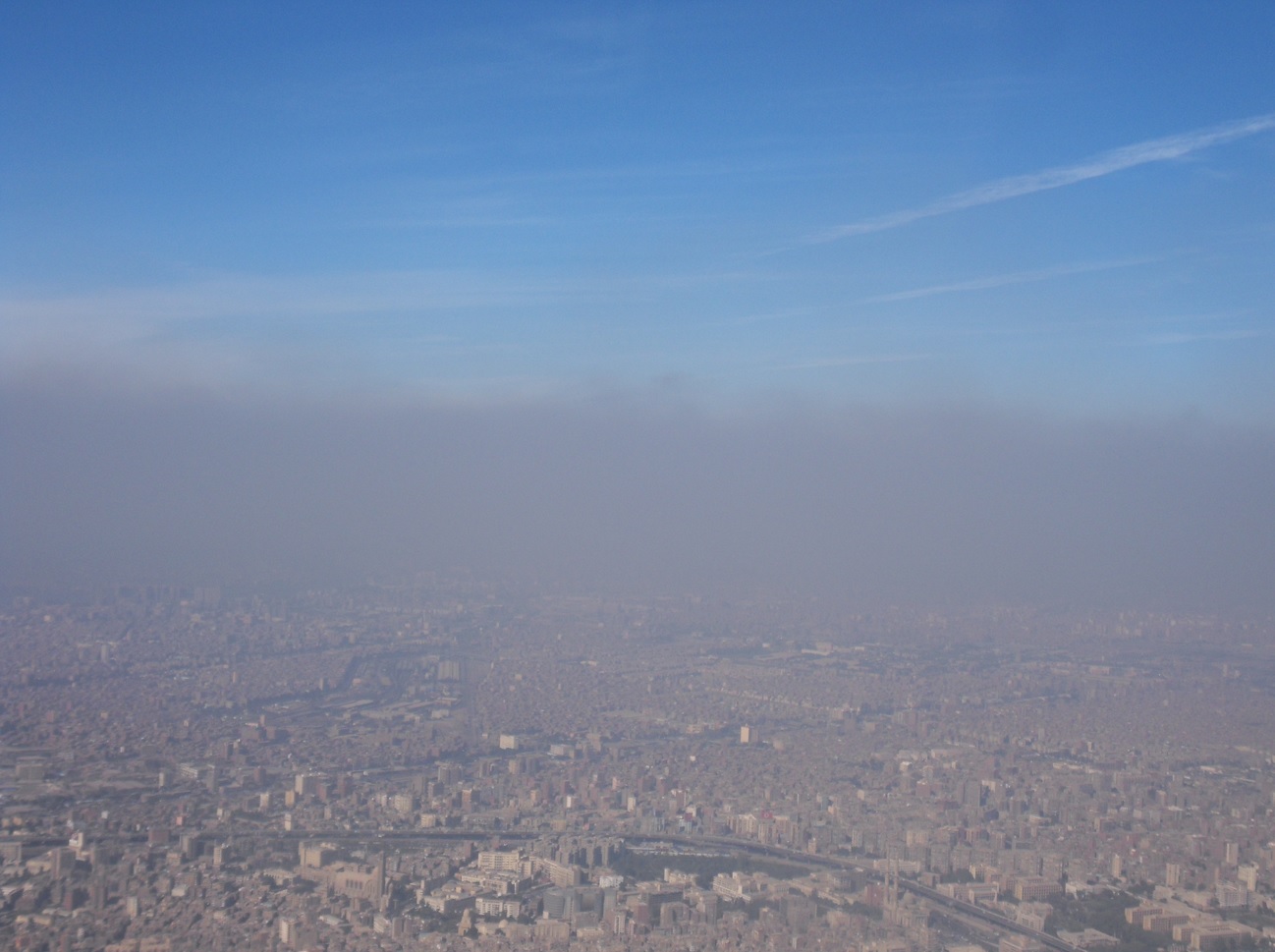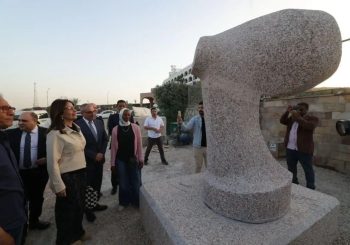By Nourhan Magdi, The Cairo Post
A dark, thick smog has begun to creep into the Cairo skies, and a number of other governorates are reporting dangerous levels of air pollution and respiratory diseases.
The cloud is witnessed every year in October and November, caused by farmers burning leftover straw from the rice harvest that gives off plumes of heavy smoke.
To limit the dangers this year, the Ministry of Environment formed a central operation room to prevent the unregulated straw burning and agricultural waste.
The Black Cloud
The Ministry of Irrigation determines the number of acres of rice to be cultivated each year, in order to save water and limit burning process of excess straw.
Many farmers across the country, however, exceed the limit, resulting in higher percentage of rice straw left to be burnt.
This year, Minister of Environment Khaled Fahmy stated cultivated areas of rice grew by over 100 percent.
Consequently, the leftover rice straw that should have been collected and recycled exceeded government capacity to manage, and authorities announced at the end of August 2014 they were unable to collect all of it.
“Farmers, with a low amount of remaining rice straw, find burning straw cheaper and easier,” former head of Environment Research Center Mawaheb Abu el-Azm previously told The Cairo Post.
Farmers have mistaken ideas that burning straw increases the fertility of the soil, “and this makes them burn all the excess straw they have,” she added.
To solve the problem, “two options are proposed to the farmers in order to stop burning the rice straw: either they pile up the excess straw to be converted into fertilizers or they sell it to companies,” she explained.
As many farmers still choose to burn their rice straw, “the ministry of environment is monitoring, in cooperation with the Ministry of Agriculture, the process of burning straw in governorates.”
Youm7 reported that inspection campaigns by the Ministry of Environment since the beginning of October and until Sunday have spotted 946 fires resulting from burning agricultural waste in Sharqia, Dakahlia and Gharbiya governorates.
How to end the cloud?
The question should be “Is the level of the black cloud phenomenon now similar to when it started in 1999,” said Abu el-Azm. “Now it has dramatically reduced compared to before.”
Azm added that now there is a plan and a signed protocol between the Ministries of Agriculture and Environment to combat the Black Cloud phenomenon and convert straw to fertilizers.
Head of the former National Committee to mitigate the effects of disasters Maghawry Shehata told The Cairo Post that there should be an “integrated plan” and he said that the monitoring responsibility falls on the Ministry of Agriculture.
Raising farmers’ awareness was reported to be on the top of the ministry’s agenda, and two programs were previously announced to encourage young farmers to convert 90 percent of 100,000 tons of rice into organic fertilizers.
During the past few weeks, more than 620 police reports were filed against violating farmers who were then referred to the prosecution, Youm7 said.
Additional reporting by Manal el-Essawi, Iman Mhana, Osama Abdel Hamid and Ahmed Akram.







Comment (1)
The farmers should face severe punishment for burning late at night and early morning to avoid getting caught.